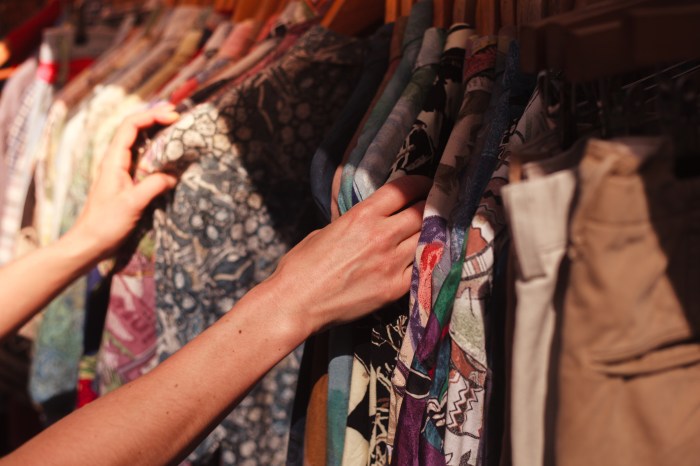We received this letter from reader Mattisen Dimler, who offered a different point of view on our article about the soon-to-be-opened Morris Home, the nation’s first holistic treatment center for transgendered people.
“The development of this shelter points to an enormous flaw in the
system: by protecting from discrimination we encourage segregation and
more discrimination,” Dimler said in an email. Her point is solidly valid: why can’t transgendered people get services at the same places everyone else does?
The reality is that, at this time in society, they oftentimes can’t, but that doesn’t mean the possibility shouldn’t be addressed and discussed. Dimler’s response is part of an important dialogue and I would be remiss in letting her perspective go unnoticed.
Here is her letter:
“As a transgendered woman living in this city I feel a civic responsibility to respond not to your article, but rather what it reports:
Let me begin by saying, however, that the city of Philadelphia has taken immense strides in the way of making it possible for transgendered men and women to live their lives as they wish to live them. There are, at least, de jure employment protections and considerations for the homeless, which is more than many places in the country can say, including the city’s own suburbs. In addition, the Mazzoni Center and its partners have made affordable what once was reserved for transgendered children of rich, ultra-liberal parents or people with minimum 70k per year jobs. Without both of these advances I would have been stuck in that wretched prison of a mind and body for the rest of my life. I was able to find in the city a better position with my company than the one I had in their suburban office, not to mention that the new office was much more receptive to my coming-out than the old one would have been. The Mazzoni Center makes my hormone replacement drugs available to me for about $30 a month versus the $150-$200 they would have cost just eight years ago. For these advances and the fact that everyone except for one Manayunk dirtbag who tried taking my picture has treated me with the utmost respect and made this an almost entirely positive experience, I praise our city and its efforts.
That said, the development of this shelter points to an enormous flaw in the system: by protecting from discrimination we encourage segregation and more discrimination. Furthermore, that segregation drives a deeper wedge between a people who already feel marginalized by its own bodies and biology, not to mention society at large. Building a separate shelter is a great thing, and a government-funded clinic as well, but why should I have to travel into one clinic in the city and get my medication from one pharmacy? Why can’t I see my family doctor and go to my local pharmacy for the same low-cost medications? Should we do the same for diabetics, or people with a missing left leg? The city of Philadelphia’s efforts, in this way, to me, are treating the symptom and not the disease, and in doing so are only worsening the problem.
I’m not an expert in policy—just your average twenty-something working professional—and so I can’t claim to have any definitive solution or solutions. Nor am I the voice of the entire transgender community. But that is exactly the point: Every trans-man and –woman’s situation is unique from every other’s in the same way that all people are different from one another. I can only speak for myself. To that effect, I just want to be in my twenties and be the same person I was before I decided to transition at 28 years old. I want to snowboard, and make art, and be good at my job, and fall in love, and see Grateful Dead tribute bands at the Blockley. Instead of educating the people of our city and making public and comfortable what is typically uncomfortable, and enforcing integration, we are allowing “separate but equal” all over again.
The first time I ever went to get my eyebrows waxed I told the girl that I was transgendered and hadn’t come out at work but I wanted to look more feminine. She had no problem and laid me in the chair and went to work. Then she asked me exactly what “transgender” means, because she just didn’t know. It occurred to me that this was the case on the large scale. We know the word, we get the concept, but we understand it very little, and very few people understand that the person underneath doesn’t change. It was here I saw my first opportunity to help people and reach out. I realized that I could use my personality to kill the elephant in the room, and make humor about it, and be confident and comfortable, and make others see it as no more telling of who I am as the clothes I wear (pun intended…and achieved…).
This doesn’t mean that I’m ok with being relegated to hanging out at Sister’s Lounge to meet people. Nothing against Sister’s and its patrons, but I didn’t go there before; why should I start now? The support groups available in the Philly metro area pose the same predicament: support groups operate on the assumption that we are all going through the same thing, which is entirely not the case. To date I have not met one other trans-person in all of my usual haunts and hang-outs. While I support the right of every trans-person and otherwise to pursue his or her journey in his or her own way, for those of us who just want to continue being ourselves, segregation and special privilege is not the answer. There exists absolutely no guidance on how to engage in the process in a way that is positive and open and, well, cool.
I apologize for my lack of brevity, but this is very clearly an issue that hits close to home. I 100% support the opening of this center, but only with the stipulation that it is accompanied by a campaign of educating both the people of this city and the transgender people living among them. The city government needs to make it known that it will enforce to the fullest extent of the law the legal protections put in place for transgendered men and women—and actually enforce it when the time comes. Also, the city needs to begin taking strides not to segregate but integrate, and to do that it needs to put the transgendered community in charge of its own fate. It needs to make it possible for those of us in the mainstream who are afraid of being marginalized to continue to be mainstream, and to have a positive voice for the rest of the community. Being transgendered is not my identity; it’s simply one of many crosses I bear. I shouldn’t have to wear it on my sleeve. I’m just trying to chill, man.”
Thanks, Mattisen, for your input – it’s always enlightening to view things from another angle.




























